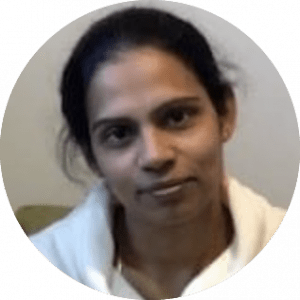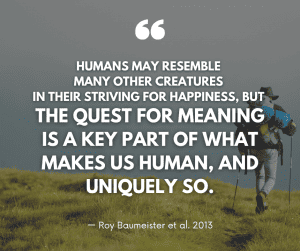Tokyo Mental Health is here to support you and provide you with the help you need.
Author: Udeni Appuhamilage, Ph.D, TMH Psychologist 

Happiness and meaning are two of our most central motivations in life, and are essential elements for our overall wellbeing. There is a plethora of research, especially in literature on positive psychology, to show that (Seligman, 2002; 2011; Carr 2022). However, the extent to which we, as a society, pursue meaning is significantly low compared to our pursuit of happiness. Our modern lives are driven by a push to secure the perfect job, house, partner, even the perfect school for our children fueled by the assumption that somehow all these ‘achievements’ will make our lives happy and fulfilled. Surprisingly though, this pursuit of happiness has also led to increased depression, stress, anxiety and distress. In fact, research shows how seeking happiness can sometimes be self-defeating (Mauss, I, Tamir, M. Anderson, C & Savino, N. 2011; Schooler, J., Ariely, D & Loewenstein, G. 2003). Plus, despite the physical comforts and better standards of living that we have achieved over the last several decades which ultimately leads to feeling happy, the world is also witnessing an alarming rise in mental health concerns, specifically, addictions, depression, stress and anxiety (The Economist 2016).
While one can imagine the close connection between these motives, it needs to be noted that the two do not always feed off each other and that the connection between these two psychological states are multifaceted. It is true that when we find meaning in life, we tend to feel happier and the happier we are in life, the readier we are to seek meaning. Also, activities like hanging out with friends or reading a book can bring both meaning and happiness to one’s life. However, it also is true that one may find happiness in doing drugs or reckless driving, behaviors that may not give their life meaning. The same way, one may sacrifice their basic needs in going on a hunger strike for a social cause, thereby gaining a meaning but sacrifice happiness along the way. Baumeister’s work (1991) discusses how these two drives fundamentally differ in detail; for example, the author notes how feeling healthy or good leads to happiness and not necessarily to meaning, scarcity of money leads to unhappiness but not necessarily to a reduction in the meaning of life, and feeling creative, wise and sometimes anxious can be positively correlated to meaning but negatively correlated with happiness. In fact, the need to avoid unhappiness and discomfort can actually deny someone’s growth to build a meaning to their lives.
Martin Seligman (2011), renowned for his work on understanding human wellbeing, describes how meaning comes from belonging to and serving something beyond yourself and from developing the best within you. The eminent psychiatrist Victor Frankl (2006) is one of the most powerful writers about meaning and its significance for our lives. Influenced by Nietzsche’s writing, specifically his notion that ‘he who has a Why to live for can bear almost any How’, Frankl based his whole theory – logotherapy- on this one motive, namely man’s search for meaning. Even though Frankl’s work is about one of the most atrocious and depressing events in the history of mankind-the concentration and extermination camps of the Nazi Germany- his work is actually not about death and suffering per se, but about survival, about the sources of strength that enable one to survive the horror of the camp.
Smith (2017)¹ builds on these pioneering works on the significance of meaning for our lives; according to her, there are four pillars of meaning in our lives (Smith 2017).
- Belonging refers to being in reciprocal relationships where the two or more people involved value each other for who they are intrinsically and not for what they believe, agree with, hate or love.
- Purpose, the second pillar, is not about what one wants but about what one gives. In other words, purpose cannot be about getting the best job or the perfect partner, which can make one happy, and yet, fail to give meaning to their lives. Instead, it is about what it is that you like to give. So, a parent may say that their purpose is to raise their kids well while a teacher may say that their purpose is to educate their students well. Purpose is what gives us the ‘why’ of our lives and thereby drives our lives. For the most part, we find purpose in our work. Hence, disengagement, poor boundaries, workplace discrimination or poor evaluation are not just management problems at work; they are existential ones too.
- Transcendence is about those moments in our lives that lift us above our mundane, day-to-day affairs, moments when our sense of self gives away to an experience of connecting to something bigger than us. We may experience transcendence while seeing art, playing music, reading a book, climbing a mountain, feeding a baby, taking a walk in nature, listening to the sound of sea waves breaking on the shore or a religious prayer. The key to transcendence is about being in a way that enables us to lose our dependence on time and place thereby allowing ourselves to experience a heightened state of self-awareness.
- The fourth pillar is storytelling, or the kind of story about ourselves that we tell ourselves. We are always holding onto stories about ourselves, knowingly or unknowingly. This is the story that we believe in as how we became us, and what makes us feel proud, sad, ashamed, depressed, excited, curious, etc. about ourselves. We may actively write our story, questioning and seeking meanings, but we may also be passive writers and hold onto a story without really processing it. Either way, the point is that we are the authors of our story. If so, we can change that story too, if we want to.
Psychology notes how both happiness and meaning are key to our overall wellbeing. As Kashdan, Biswas-Diener & King (2008)² note, human beings are happiest when they are engaged in meaningful endeavors. Happiness is about getting our needs and wants satisfied and feeling good, while meaning is about building a unique relationship with one’s own self, and in extension, with the group. Meaning involves making sense of our experiences, integrating them to our sense of self, and driving ourselves to pursue goals that reflect our sense of self and also allow us to move beyond narrow self-interests. Happiness is an emotion, and it evolves, comes and goes; meaning, on the other hand, gives us something to hold onto specially in times of distress.
¹ Smith, E. 2017. The Power of Meaning: Crafting a Life that Matters. NY: Crown Publishing Group.
² Kashdan, T., Biswas-Diener, R. & King, L. 2008. Reconsidering happiness: The cost of distinguishing between hedonics and eudaimonia. The Journal of Positive Psychology 3(4): 219-233
References
- Baumeister, R. 1991. Meanings of Life. London: Guilford Books
- Baumeister, R. Vohs, K. Aaker, J. & Garbinsky, E. 2013. Some key differences between a happy life and a meaningful life. The Journal of Positive Psychology 8(6): 505-516
- Carr, A. 2022. Positive Psychology: The Science of Wellbeing and Human Strengths. OX: Routledge Publishers.
- Frankl, V. 2006. Man’s Search for Meaning. Boston: Beacon press.
- Mauss, I., Tamir, M. Anderson, C & Savino, N. 2011. Can seeking happiness make people happy? Paradoxical effects of valuing happiness. Emotion 11(4): 807-815
- Schooler, J., Ariely, D & Loewenstein, G. 2003. The pursuit and assessment of happiness can be self-defeating. In J. Carrillo & I. Brocas (Eds) Psychology and Economics (41-70). Oxford: Oxford University press.
- Seligman, M. 2002. Authentic Happiness. NY: Atria Paperback.
- Seligman, M. 2011. Flourish: A Visionary New Understanding of Happiness and Wellbeing. NY: Free Press.
- The saddest trend. 2016. The Economist. https://www.economist.com/united-states/2016/04/30/the-saddest-trend Retrieved on 17 June 2023